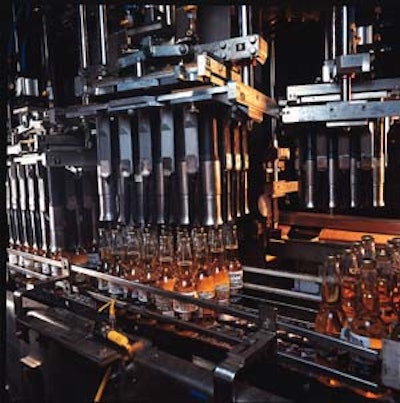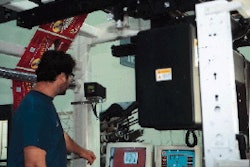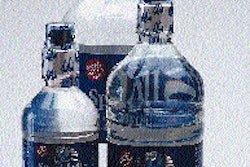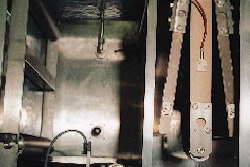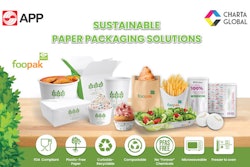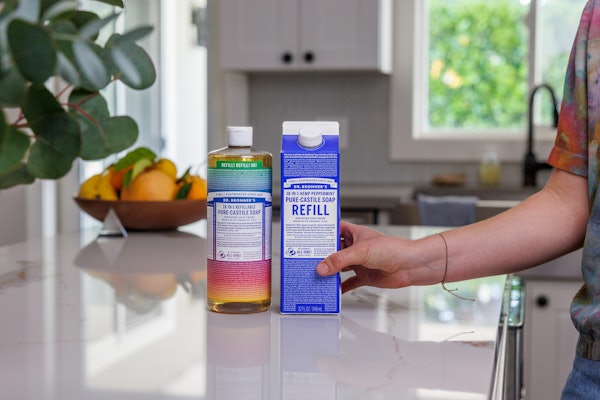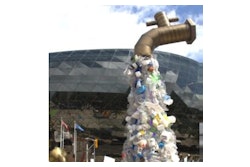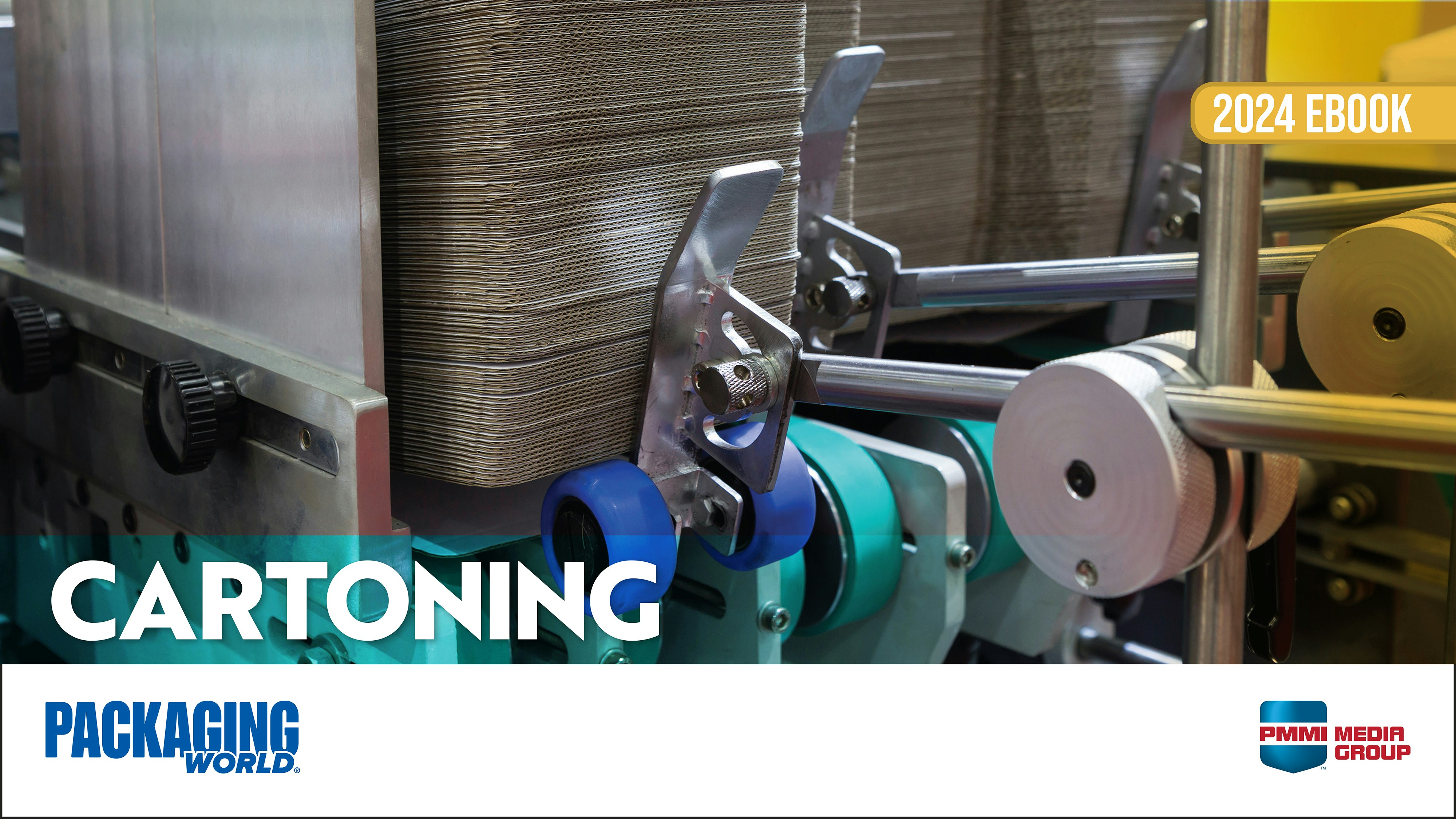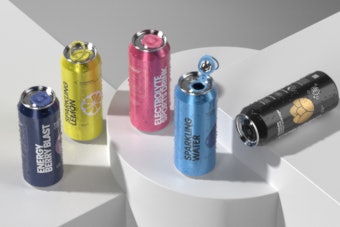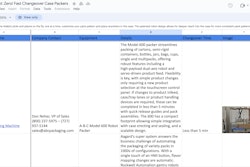In the U.S., consumers know Corona beer for its nonreturnable clear longneck bottles decorated via applied ceramic labeling. The Mexican market for Corona is much different. There, refillable bottles are the staple for Corona, via a nationwide deposit system and distribution through the brewing company's own outlets. Corona and other brands are brewed and packaged by Modelo, C.V., Mexico City, through its network of breweries throughout Mexico. One of that company's most modern breweries is at Tuxtepec, in southern Mexico in the province of Oaxaca. It brews and packages Corona, Corona Especial, Victoria and Estrella in a variety of bottle sizes. Early last year, that plant installed new rotary glass bottle packers, the Series 9000 from Barry-Wehmiller Co.(St. Louis, MO) that have become the model technology for glass bottle packing in all Modelo lines that use reusable cases. These packers can produce up to 55 cases/min, or more than twice the volume of the drop packers they replaced. Tuxtepec is at least two airplane flights from the U.S. border. But it may be even farther in understanding how publications like Packaging World work. The Tuxtepec plant packaging people responded to some PW questions, but not in the detail that is common to PW feature articles. Still, the story is a compelling one. The returnable case In Mexico and in some other Latin countries, domestic beer is primarily sold in refillable glass bottles that are packed in reusable corrugated cases. While the glass bottles are robust and can make several trips through the packaging and marketing cycle, the cases and the partitions inside are much more susceptible to damage. The breweries continue to improve the technology and speed for washing, filling, capping and labeling, but the back end of the line has received far less attention, primarily because of the often poor condition of the secondary packaging. A few years ago, Barry-Wehmiller designed a rotary case packer specifically for bottling lines that pack in reusable cases. When it learned that Modelo was beginning to design a new brewery in Mexico, the supplier presented the equipment design to the brewery management and asked them to evaluate a system at its Mexico City headquarters brewery for possible inclusion in the new plant. "In the past, Modelo felt that the condition of the returned cases prevented them from using new high-speed technology in case packing," says Bob Chapman, chief executive officer of Barry-Wehmiller. "We offered them a chance to use technology in the back of their lines that would be the equal of the technology they used in the front of their lines." Modelo performed exhaustive tests on the system in Mexico City and realized the system could provide benefits not only in the new plant but throughout its glass packaging lines. PW visited the brewery at Tuxtepec, the Modelo brewery with the equipment most recently installed. Influence of unions Like many cities in the U.S., the southern city of Tuxtepec is heavily unionized. To compete effectively against other breweries, Modelo sought to cut labor costs. Based on the experience in Mexico City, the company realized it could reduce those costs with the new case packers. Among its four glass packaging lines, Tuxtepec operates two of the highest-speed glass packaging lines within the Modelo family, each packaging 1꽤 bpm. In the past, these lines each required six conventional drop packers and an even greater number of case tape sealers. And all of the machines had to be monitored. When it installed the Series 9000 packers and the Model TP50 case tapers from Barry-Wehmiller, the number of machines and operators was effectively reduced by one-half. These weren't the only machines replaced; washers and pasteurizers were similarly installed as Modelo moved its filling lines into the forefront of North American production volumes. But the new equipment allowed Modelo to substitute one machine for two on virtually all its glass bottle lines. The result-at least for its highest speed lines-was the savings of some seven workers per line, the brewery says. Modelo is reluctant to reveal the payback period, based on those savings. Gentle handling The high-speed lines package Corona and other brands in a variety of glass bottle sizes, mostly for the Mexican market. One of the lines also packs Corona in 12-oz bottles for export, primarily in six-pack basket carriers, four to a case. While these nonreturnable bottles are predecorated via ACL, the line also operates three labelers for the brewery's other brands. The output of all three labelers is mass conveyed towards the case packers. To minimize slowing down the front of the line, the bottles are conveyed to or through two large accumulation tables, one measuring 8 x 20', the other 10 x 20'. As the bottles near the case packers, they pass an oscillating transfer table that helps to feed the bottles into four lanes. Once in the machine, a servo-driven flight rod separates the bottles into a 4x6 arrangement and pushes the group forward in synchronization with the pick-up head. Each packer has eight transfer heads. Each head has 24 bottle grippers (for the export case) that gently drop over the bottle necks to mechanically grip the bottle group. The group is picked up and rotated toward the other side of the machine where the cases are being conveyed. After a visual inspection of the case and basket carriers or partitions, the cases are conveyed into and through the packer. Guide rails ensure that flaps are held open and out of the way. At the appropriate time, the packer head lowers the group of bottles into the case and the grippers release them into the various cells (partitions in domestic cases, basket carriers for export). The heads then retract and continue around to the pick-up point. Paper or plastic? Filled cases are conveyed into the new TP50 tapers. A new design, the tapers use either paper tape for returnable cases or plastic tape for export. The paper gummed tape presents an economical and good bonding surface for subsequent tape application for the reusable cases. It's fed through a water bath to activate the adhesive. The taper has pneumatically operated rollers that affix the tape to the leading edge of a case. One of four cutting knives mounted on a carousel descend behind each case and cut the tape from the roll. Pneumatic rollers smooth down the trailing edge of tape. Like the case packers, the key to the speed of the system is continuous motion; the cases and the tape are continuously conveyed through each machine. Both the packer and the case taper are synchronized via a servo motor. For reusable cases, Modelo says that the average is about eight trips. That's about the same as the brewery experienced before. But, says Frank Jimenez, a Barry-Wehmiller project engineer, the brewery reports less glass breakage with the new lines. Once the cases are sealed, they are conveyed to an automatic palletizer. At Tuxtepec, plant management reports the packers operate at an efficiency level of 94%. That's considerably better than the efficiency levels in many U.S. plants, according to the Packaging Machinery Manufacturers Insti-tute's productivity forum estimate. The performance proof may well be that Modelo confirms that it has now installed or ordered some 39 of these case packer/taper systems for its plants throughout Mexico. "This has been one of the most unique and rewarding projects I have been involved with," concludes Chapman of Barry-Wehmiller. Typically, a customer brings a problem or opportunity to a vendor. In this case, B-W took the initiative in a way that moves technology forward.
